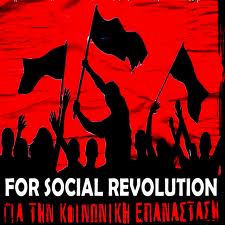|
Speaking |
|---|

Photo of Don DuPay
by Theresa Griffin Kennedy
Navigation:
FrontPage / Activism /
BlogPortal / Calendar /
Ongoing Calendar Events
Donate / Flyer/
Pictures on Picasso:
picasaweb.google.com/
theportlandalliance /
PDX Music /
Poster / Subscribe /
Place Ad / Ad Rates /
Online Ads /
Advertising /
Twitter / News! /
Previous Issues /
Blog/ Myspace /
Facebook1 / Facebook2
Waterfront Blues Fest
Alliance on YouTube:
youtube.com/theportlandalliance
Features:
Joe Anybody!
Active Community /
A Few Words /
Arts & Culture /
Book Reviews! /
Breaking News /
Cartoons / Steve Amy /
Too Much Coffee Man /
Community Calendar /
Cover The Real News! /
Labor Radio!
Jobs / Labor History /
Letters / Music /
NewsBytes /
Poetry/
Mike Hastie Poetics
Progressive Directory /
Secret Society /
Viewpoints & Commentary
Columns:
William Beeman /
Ellen Brown /
Shamus Cooke /
Tom Engelhardt /
Kucinich /
Michael Munk /
Myers / William Reed /
Mark Schwebke /
Norman Solomon /
Vorpahl /
Lawrence S. Wittner
Partners: ACLU
AFD / AFL-CIO
Alliance for Democracy
AMA / Backspace
B-MediaCollective Bread&Roses /
CIO / CAUSA/
CLG / Code Pink
Common Dreams /
CWA / DIA /
Democracy Now /
First Unitarian Church
FSP /ISO /
Jobs w\ Justice /
KBOO /Labor Radio /
LGBTQ / MRG / Milagro /
Mobile T's Cover the News
Mosaic / Move-On /
NWLaborPress
Occupy /OEA /
Occupy PDX /
Oregon Peace & Justice /
Peace House
Peace worker /
PCASC / PPRC /
Right 2 Dream Too /
Sisters of The Road
Street Roots / Skanner /
SocialistWorker.org /
The Nation / TruthOut /
The 99%
Urban League /
VFP / Voz
We Are Oregon
Whitefeather
Witness for Peace /
Topics: A-F
Arts & Culture /
AIPAC / Beatles /
Books /
Bradley Manning /
Cartoons /
Civil Rights / Coal /
Death Penalty / Drones /
Economic Justice /
Education /
Election 2012 /
Fascism /
Fair Trade / F-29 /
Environment /
Film / Fluoridation
Foreclosure /
Topics: G-R
Health Care / Homeless / Iraq
J-Street / Jill Stein /
Justice Party /
Middle East /
Music /
Occupy Blog / Peace /
Persian / Police /
Post Office / Quotes
Topics: S-Z
STRIKE! / Theatre /
The Pongo Fund /
Torture / TPP /
Tri-Met / Union /
Unionresource / VDay /
Viewpoints
Visual Arts
Voices in Action
War & Peace /
Women / Writing /
WritingResource
Yell
Bill Beeman Presents
Commentary and Information
on Persian Affairs,
International Events,
and Middle Eastern
Political Machinations
Bill Beeman's archives
http://www.ThePortlandAlliance.org/beemansarchive
By Mohammad Mazhari
West views Ukraine more favorably than Yemen: academic
March 7, 2022 - 15:23

THRAN – An American academic says that Western powers regard the Ukraine crisis more favorably for assistance than Yemen or Afghanistan.
“Unfortunately, Europeans and Americans are viewing the Ukrainian situation more favorably for aid and assistance than Yemen or Afghanistan,” William O. Beeman tells the Tehran Times.
“Some claim that this is due to the inherent racist or Islamophobic tendencies in Europe and the United States. There is no question that Ukraine is seen as White and Christian (President Zelensky is, however, the only international Jewish head of state outside of Israel),” Beeman adds.
Following is the text of the interview:
Q: Some political pundits like John Mearsheimer believe that Ukraine could be neutral and get rid of the West-Russia competition. But what happened is that Ukraine entered the competition. What is your comment?
A: It appears to be too late for Ukraine to remain both neutral and independent of the Russia-Euro American competition. Zelensky has already asked the EU for membership and has requested NATO membership. The only thing that Putin would accept is for Zelensky to be removed and some pro-Moscow puppet be put in his place, as in Belarus. Putin wants to recreate the Russian Empire, and "unite all Slavic people." His position is that Ukraine is a "fake country" created by Lenin/Stalin and is really part of Greater Russia. And as for neutrality, with even perpetually neutral Finland and Sweden now considering joining NATO, that ship has sailed.
Q: How do you see reactions of the American public to the Ukraine war? Apparently, some Republicans, particularly Trump, praise Putin.
A: Part of the American public listens to former president Trump and right-wing media such as Fox News. Commentator Tucker Carlson has been rooting for Russia, and there is a segment of the American population that follows this line of thinking without much real examination of the issues. However, recent polls show that more than 80% of the American public does not support Putin's actions, and many say they would be willing to pay more for energy if it would stop Putin's invasion.
Q: What is America's record when we talk about respecting sovereignty?
Is there a good invasion and a bad invasion? For example, when America invades Iraq it is reasonable but when other countries do the same thing it is a violation of international law?
A: The United States has a terrible record when it comes to honoring the sovereignty of other nations. Over decades the United States has been involved in efforts of regime change in many nations including Latin America, the Middle East (West Asia), and Southeast Asia. Many of these actions before the fall of the Soviet Union were aimed at Cold War containment of "Communism". More recently actions directed at Iran, Iraq, Afghanistan, and Syria were directly aimed at regime change or regime support. So, in purely historical terms, the United States doesn't have much room to lecture other nations about the morality of hegemony.
Q: How may the Ukraine crisis affect the Vienna talks?
A: If the JCPOA is restored and sanctions against Iran are lifted-especially sanctions against oil and natural gas exports, it would greatly relieve petroleum scarcity in the world market. Iran has a large stockpile of unsold petroleum products that could be immediately released. Iran's oil export capacity could meet 1/3 of all European needs for oil. So resolving the JCPOA would be a huge benefit for Europe and the United States in its conflict with Russia. It would also help curb the current worldwide inflation not only by reducing the price of oil but by opening Iran with 84 million people to the world market.
Q: The Ukraine war reminds us of other wars in the region like the war on Yemen. What can we learn when we see different approaches to these wars?
A: Unfortunately, Europeans and Americans are viewing the Ukrainian situation more favorably for aid and assistance than Yemen or Afghanistan. Some claim that this is due to the inherent racist or Islamophobic tendencies in Europe and the United States. There is no question that Ukraine is seen as White and Christian (President Zelensky is, however, the only international Jewish head of state outside of Israel). And that seems to be a factor in driving aid to Ukraine as opposed to other countries where help is needed.
https://youtu.be/v7jO-yBvEsE
William O. Beeman, Professor and Chair of the Department of Anthropology at the University of Minnesota and President of the Middle East Section of the American Anthropological Association, delivered a Center for International and Regional Studies (CIRS) Monthly Dialogue on "The Khalijis: Iranian-Arabian Biculturalism in the Gulf Region" on October 22, 2012. Read more about this Distinguished Lecture at http://cirs.georgetown.edu/327845.html
Older News:
TINDERBOX TENSIONS RISE: SAUDI ARABIA
AND IRAN BY WILLIAM O. BEEMAN
June 24, 2018 · by Rise Up Times · in Iran, Trump presidency, U.S. Foreign Policy · Leave a comment
Up until the Trump administration, the United States was nervous about these rising tensions, and tamped down moves by the Saudi government to take serious military action against Iran for fear of destabilizing the entire region—and a major source of petroleum for the world.
By William O. Beeman Women Against Military Madness
Newsletter Vol. 36 Num. 2 May/June 2018

Regional map of Saudi Arabia, Iran, and surrounding countries.
As the U.S. provides more arms sales to Saudi Arabia, here’s a look at the kingdom within its regional context, and its history with the U.S. from the end of World War II up to more recent times.
The Middle East region is once again a tinderbox as tensions between Saudi Arabia and Iran are rising to new heights.
Although hostility between the two states has been simmering for decades, two new factors have served to cause their mutual enmity to heat up further. The first is the presidency of Donald J. Trump in the United States. The second is the rise of Mohammad bin Salman (MBS in the vernacular) as heir-apparent to the Saudi kingship. Both of these leaders are hostile to Iran, and highly friendly to each other. This heightened alliance has created a new dynamic relationship in the Middle East. MBS is young and ambitious, and seeks a new and heightened role for Saudi Arabia in the Middle East and the world. Trump is anxious to flex American muscle wherever he is able. For both, Iran is a highly suitable target.
Saudi Arabia has long been a rentier sleeper state in the Middle East. It had two primary identifiers on the world scene: its petroleum exports and its guardianship of the sacred cities of Mecca and Medina with the attendant annual Hajj pilgrimage. It has been a staunch ally of the United States since after World War II, when U.S. commercial interests coincided with the Cold War need to keep the Soviet Union at bay.
The U.S. “Twin Pillars” Policy: The Shah of Iran and Saudi Arabia
The United States was petrified that the Soviet Union would invade Iran, as it did briefly after the war, and make its way to the oil fields of Iran, Southern Iraq, and the Arabian Peninsula. The U.S. then forged an unusual policy—the “Twin Pillars” policy to serve as a bulwark against the Communists. Iran under the Shah was one of the “pillars.” Saudi Arabia was the other. When the British pulled out of the region in 1972 for financial reasons, American fear of the Soviets went into overdrive.
The United States under Nixon, Ford, and Carter sold astonishing amounts of military weaponry, planes, and defense equipment to both Saudi Arabia and Iran. The Shah used American financing to beef up his military forces and repress dissent. The Saudi royal family already had its population under tight control, so it used the American funds to increase the size of its military.
The Iranian Islamic Revolution of 1978-79 was cataclysmic in reshaping the landscape of the region. Within a year of the revolution Iran and the United States had become implacably antagonistic toward each other. Iran accused the United States of supporting the Shah and his repressive regime. The United States was infuriated at the occupation of the American Embassy and the holding of its personnel captive for 444 days. Diplomatic relations between the two countries were broken and have never been restored.
U.S. Weaponizes Saudi Arabia As Its Ally
This left Saudi Arabia as the sole remaining major military power in the region allied with the United States, and American administrations continued massive arms sales to the Saudis down to the present, even after the fall of the Soviet Union in 1989. As an American ally, Saudi Arabia also went along with post-revolutionary U.S. hostility toward Iran.
As a result of earlier American investment in the military of the region, both Iran and Saudi Arabia have two of the largest armies in the world. Iran is eighth in size with 523,000 troops, and Saudi Arabia is 21st in size with 227,000 troops. Both have military troop strength greater than France, Germany, or Israel.

On April 5, 2018 people protested the Saudi Arabian war that is devastating Yemen as Crown Prince Mohammad bin Salman came to the U.S. to make deals with Silicon Valley tech titans. Trump signed off on weapons sales to Saudi Arabia the same day.
Though the Saudi Arabian army is much smaller than the Iranian army, Saudi military expenditures are massively larger than those of Iran. Saudi Arabia has the third or fourth largest military expenditures (measures vary) and the largest expenditures as a percentage of GDP in the world (10 percent). Iran by contrast is 19th in the world in terms of expenditures, spending 3.0 percent of GDP. Saudi military equipment is state-of-the-art, and is continually being upgraded by the United States.
The current Saudi regime has internal difficulties that it must deal with. It has dissidents on its own soil and abroad who disapprove of the royal family and their personal conduct on social and religious grounds. An example is Al-Qa’eda. Most Americans think that Al-Qa’eda primarily directs its efforts against the United States and the West. This is fundamentally wrong. The main target of Al-Qa’eda is and always has been the Saudi regime, which it considered to be an impure and imperfect guardian of the sacred shrines in Mecca and Medina.
Additionally, there is a significant population of Shi’a Muslims in Saudi Arabia, where Sunnis are the majority sect. Inconveniently, the Shi’a population is located in the Eastern Province on top of the oil and gas fields that provide the Saudis with their primary income.
Saudi Arabia’s Regional Worries: Iraq, Lebanon, Bahrain, Yemen
The Iranian Revolution frightened Sunni rulers throughout the region. Saddam Hussein launched an attack on Iran in 1980 to halt what he feared would be a Shi’a takeover of his government. The Lebanese government became fearful that their Shi’a population would become restive—and with good reason. Eventually the Lebanese Shi’a coalesced into Hezbollah, which had been started by Iranian revolutionaries, and which is now the strongest political force in Lebanon. The majority Shi’a in Bahrain threatened to overthrow their Sunni royal family. Because Bahrain is adjacent to the Shi’a population of Saudi Arabia, a spillover movement would threaten the entire Saudi state. Finally, the Zaidis, a Shi’a offshoot sect that had ruled Yemen for centuries but was overthrown in the 1970s, threatened to return to power under the nom de guerre the Houthis (named after the movement’s founder, Hussein Badreddin al-Houthi—the real name of the movement is Ansar Allah, “Supporters of God”). This was a problem for the Saudis because the Zaidis were not only resident in Yemen, they also spilled over the Saudi southwestern border, again threatening the integrity of the state.
Focus on Iran
The Saudi regime found in opposing Iran a way to concretize all of their fears about these internal and regional dangers. They surmised that if the Shi’a were restive, it must be because they were being provoked and masterminded by Iran. Therefore, they concluded that eliminating Iran as a power in the region would make Saudi Arabia secure.
Up until the Trump administration, the United States was nervous about these rising tensions, and tamped down moves by the Saudi government to take serious military action against Iran for fear of destabilizing the entire region—and a major source of petroleum for the world. However, now that Donald Trump is in office, and MBS [Saudi Crown Prince Mohammad bin Salman] has come into power, the restraints appear to have been greatly loosened. The Trump administration is itself openly hostile to Iran, and so has been supportive of Saudi efforts to control Shi’a forces. Recent arrests of Saudi royal family members and businessmen for “corruption” have quieted any forces in Saudi Arabia that would oppose Saudi government action against Shi’ites and against Iran. Deadly strikes against the Houthis in Yemen have tamped down Shi’a advances there.
On November 4, Sunni Lebanese Prime Minister Saad Hariri was visiting Saudi Arabia. From Riyadh he abruptly announced his resignation, causing speculation that he had been forced to do so by the Saudi government. At this writing he has not returned to Lebanon. The immediate result is that Lebanon has been left under the effective control of Hezbollah. Saudi Arabia ordered its citizens living in Lebanon to leave for their safety. [Updated: In a bizarre twist, Hariri retuned to Lebanon later in November of 2017 and reversed his resignation. Then on February 28 of 2018, he visited Saudi Arabia again and, it’s reported, pledged to stay out of regional conflicts.]
Although Saudi Arabia lays the blame for all of this regional unrest at the feet of Iran, Iran has denied categorically any direct involvement. Indeed, Hezbollah has been independent of Iran’s direct control for nearly two decades, though they fought alongside Iran and Russia to support President Assad of Syria against Syrian Sunni groups [takfiri extremists] trying to overthrow him, including ISIS (also known as IS and DAESH). Iran has denied providing any weapons support to the Houthis, although a rocket launched by the Houthis against the Riyadh airport on November 11 was tentatively identified as having Iranian identification marks.
Ironically, Could Russia Be the Wild Card Winner?
There is a strange “wild card” in the current Saudi-Iranian situation. This is Russia under Vladimir Putin, who is forging positive relations with both Iran and Saudi Arabia. This is paradoxical, since the original “Twin Pillars” policy was designed to thwart Soviet ambitions in the region. It appears that whatever transpires between Iran and Saudi Arabia, the Russians may now be the ultimate winners.
William O. Beeman is professor of anthropology at the University of Minnesota and visiting scholar at Stanford University. He has lived and worked in the Middle East, including Iran and the Arabian Peninsula, for over 40 years.
William O. Beeman American anthropologist 
Description
William Orman Beeman is an American scholar whose specialty is the Middle East. He is Professor Emeritus of anthropology at the University of Minnesota, where he was Chair of the Department of Anthropology for 13 years until his retirement in 2020. Wikipedia
Born: 1947 (age 77 years), Manhattan, KS
Books: Language, Status, and Power in Iran, MORE
Nationality: American
"People have only as much liberty
as they have the intelligence to want
and the courage to take.”
Emma Goldman
|
The right to rebellion is the right to seek a higher rule... |
Speaking Truth to Power Since 1981! Support Alternative Media! |
Alliance Persian Portal http://www.theportlandalliance.org/pdxpersian
More Breaking News: http://www.theportlandalliance.org/persian
Active Community,
Cartoons,
by Shannon Wheeler, Clyde List, & Steve Amy
Columns, Commentary, Critiques, News Bytes,
Letters, and more!
Arts & Culture
Visual Arts, Music,
Theatre,
Cartoons, Movies,
Books, Writing
Community Calendar
 Local actions, events, rallies, etc.
Local actions, events, rallies, etc.
by Yugen Fardan Rashad
This is class war, and we are under attack.
What do we do?
Stand up and Fight back!
NW Alliance for Alt. Media & Education
(NAAME) dba The Portland Alliance:
Questions, comments, or suggestions: editor@theportlandalliance.orgWe Speak Truth to Power for the 99%
http://wordsmithcollection.blogspot.com/
![]()
Follow @ThePDXAlliance Contact us:
Click Here!
Navigation: FrontPage / Activism / Interactive Calendar / Donate / Flyer / YouTube / Poster / Subscribe / Place Ad / Ad Rates / Online Ads / Advertising / Twitter / News! / Previous Issues / Blog/ Myspace / Facebook1 / Facebook2
Features: Active Community / A Few Words /Arts & Culture / Breaking News / Jobs / / Labor History / Music /NewsBytes / Progressive Directory / Cartoons / Community Calendar /Letters / Poetry / Viewpoints & Commentary
Columns: William Beeman, Ellen Brown, Engelhardt / Dennis Kucinich / Michael Munk / Myers / William Reed / Mark Schwebke / Norman Solomon / Vorpahl / Wittner
Partners: AFD / AMA / B-MediaCollective / Bread&Roses / CAUSA/ CLG/ Common Dreams / CWA / DIA / FSP /ISO / Jobs w\ Justice / KBOO / Labor Radio / LGBTQ /MRG / Milagro / Mosaic / Move-On / NWLaborPress / Occupy / OEA / Occupy PDX / Peace House / The 99% / Peace worker / PCASC / PPRC / Right 2 Dream Too /
Street Roots / Skanner / The Nation / TruthOut / Urban League / VFP / Voz /
Topics: A-F AIPAC / Civil Rights / Coal / Death Penalty / Education / Election 2012 / Fair Trade / F-29 / Environment / Foreclosure /
Topics: G-R Health / Homeless / J-Street / Middle East / Occupy Blog / Peace / Persian / Police / Post Office/ Quotes
Topics: S-Z STRIKE! / Tri-Met / Union / VDay / War & Peace / Women / Waterfront Blues Festival /
Writing / WritingResource
The Portland Alliance:
Phone: (Cell) (503)-697-1670
info: editor@theportlandalliance.org or ThePortlandAlliance@gmail.com
© 1981-2024 NAAME NW Alliance for Alternative Media & Education,
dba The Portland Alliance: All Rights Reserved.
A 501C3 Oregon Non-profit Corporation for Public Benefit
Support local media:
B-MediaCollective / The Portland Alliance / Cover The Real News! /Joe Anybody
The Asian Reporter | Kboo | Oregon Peaceworker | Portland.Indymedia.org | The Skanner




